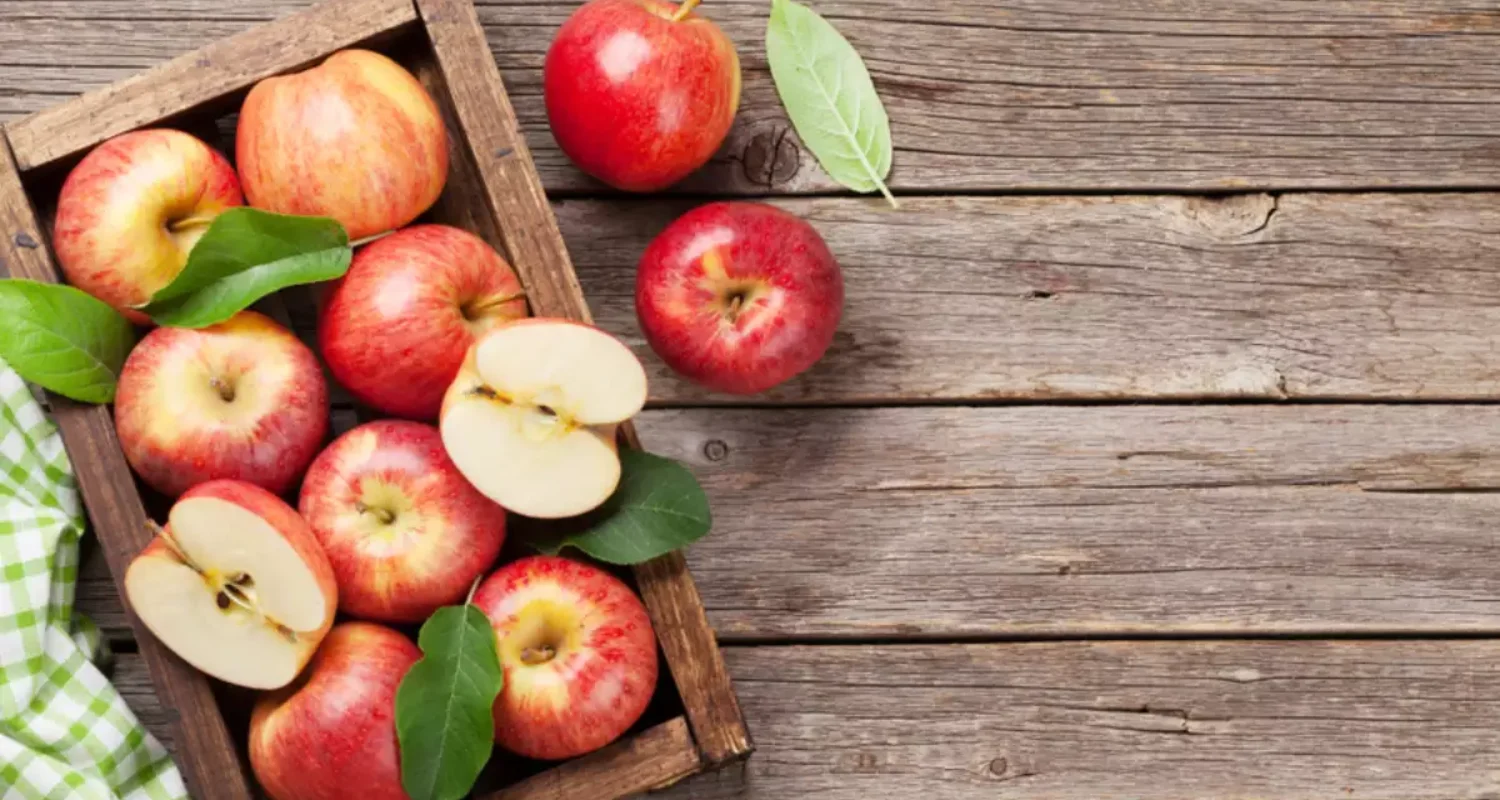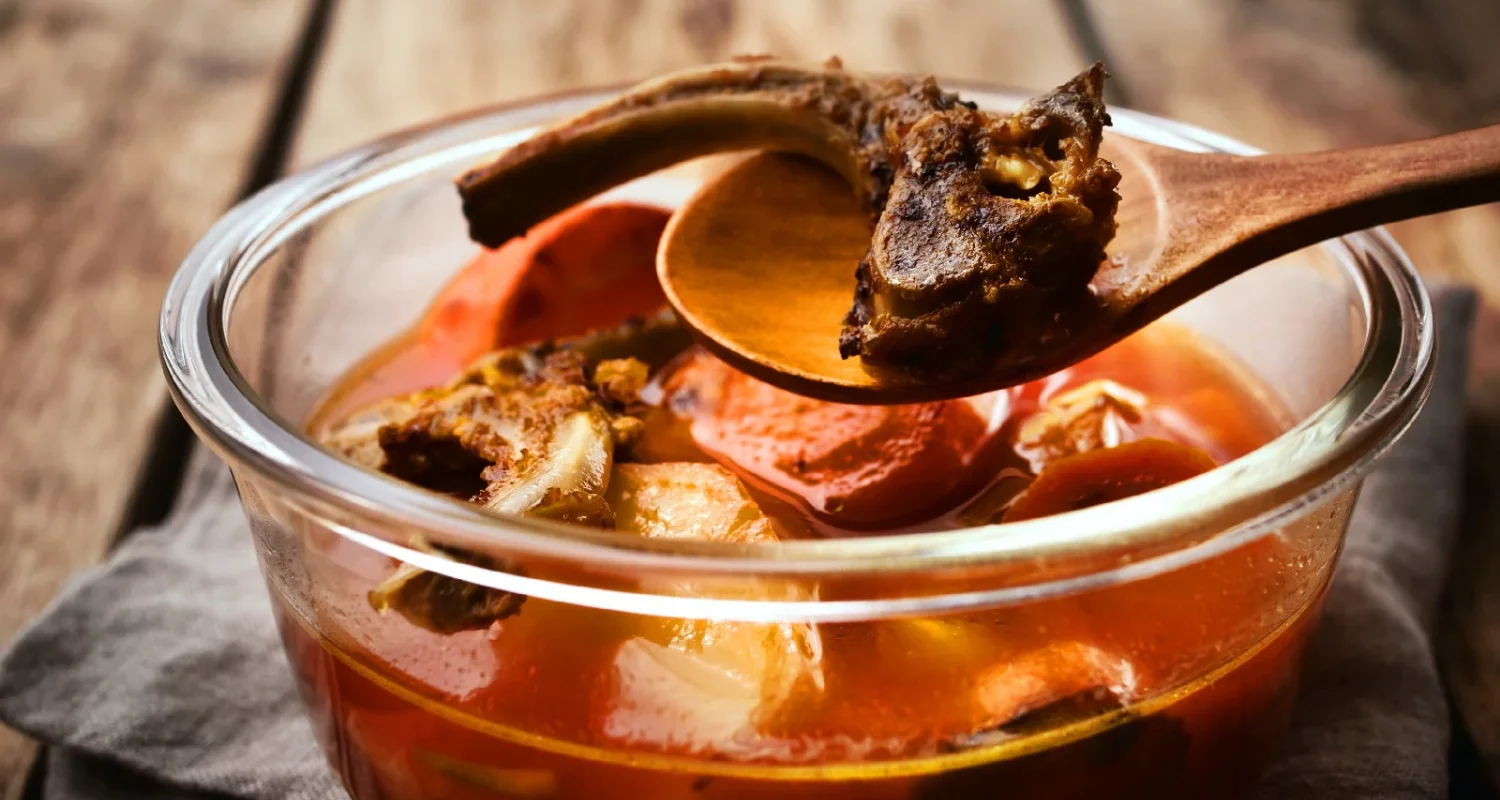Last Updated on: 3rd January 2026, 09:15 am
Are you looking for the best winter foods to boost your oral health?
Winter brings with it changes in our routine and habits that can affect oral health. During this season, cold weather and dietary changes can cause tooth sensitivity, increase the risk of cavities, and weaken gums. Therefore, maintaining good oral health is essential not only to prevent short-term problems, but also to enjoy a healthy smile throughout the season.
The foods we eat play a crucial role in maintaining strong teeth and healthy gums. Products rich in calcium, vitamin C, and antioxidants, for example, strengthen tooth enamel while they help fight inflammation and keep gums healthy. Incorporating healthy options into the winter diet is a simple and effective way to take care of our oral health from the inside out.
Winter also presents specific challenges for oral health. Hot drinks, sweet foods typical of the season, and lower water intake can contribute to plaque buildup and affect oral hydration. This is where the right foods, such as fresh fruits and vegetables, calcium-rich dairy products and natural crunchy foods, can make all the difference, helping us keep our smiles strong and protected during the winter.
Why Is Winter Food Important for Oral Health?

A balanced, nutrient-rich and healthy diet is essential to maintain optimal dental health, both in children and adults. The quality of the food we eat has a direct impact on the health of teeth and gums and contributes significantly to preventing oral problems.
Choosing foods rich in fiber, vitamins, minerals and low in carbohydrates and sugars is key to protecting the mouth from diseases such as cavities and gingivitis. These foods not only strengthen teeth and gums, but also stimulate saliva production, a natural mechanism that helps neutralize acids, remove food residues and fight bacteria, creating a protective barrier against damage to tooth enamel.
Incorporating healthy eating habits not only promotes a stronger and cleaner mouth, but also promotes general well-being. With an adequate diet, it is possible to preserve a healthy smile and prevent dental complications in the long term, guaranteeing both functionality and aesthetics in oral health.
How Winter affects Oral Health?

One of the main effects that cold weather causes on dental health is sensitivity, this is due to sudden changes in temperature causing the contraction and expansion of enamel leaving some areas of dentin exposed, thus causing dental sensitivity.
On the other hand, we can also find dry mouths due to exposure to heated environments as well as decreased water intake, reducing saliva production, and leading to an increased risk of cavities and plaque buildup.
During the cold months, the immune system tends to weaken, which can make the gums more susceptible to infections or inflammations, such as gingivitis. The combination of low immunity and inadequate oral care can aggravate these problems.
The Best Winter Foods for Stronger Teeth and Healthier Gums

1. Dairy products
Like cheese, butter, milk, and yogurt, they are high in vitamin K2, calcium, and phosphate, helping to strengthen bones and tooth enamel. Dairy products also contain casein, which helps reduce acidity and bacterial growth in the mouth, providing a natural defense against tooth decay.
2. Green leafy vegetables
Vegetables act as prebiotics that support healthy bacteria in the mouth. This not only improves the balance of the oral microbiome, but also benefits the cardiovascular system by promoting an increase in nitric oxide production. Green leafy vegetables, in addition to helping keep teeth cleaner, actively contribute to more robust oral health.
Dark green leafy vegetables are especially beneficial for teeth, as they are rich in essential minerals that are absorbed during the remineralization process, strengthening their structure. Among the best options are kale, spinach, turnip greens, chard and arugula.
3. Fatty fish
Fish is an essential component of the diet due to its high content of vitamin D, which is necessary for the entire body and also provides benefits for reducing the risk of cavities by providing calcium and strengthening teeth. Another main component of fish is omega 3, which promotes gum health and prevents the appearance of periodontal diseases. Tuna, mackerel, salmon and trout are some of the fish with the highest content of vitamin D and omega-3.
4. Nuts and seeds
Winter is considered the season for nuts, which are a tasty and crunchy snack. Almonds, walnuts and sunflower seeds provide minerals such as calcium and phosphorus that help strengthen enamel. In addition, chewing nuts increases saliva production, providing more benefits as a protector of dental surfaces.
5. Apples

The crunchy fibers of apples act in a similar way to a toothbrush, helping to clean tooth enamel while chewing and stimulating the gums. In addition, eating an apple encourages the production of saliva, a natural ally for oral health. Saliva helps neutralize acidity in the mouth and removes food debris, contributing to effective cleaning. Without a doubt, the apple is an exceptional fruit for dental care.
6. Citrus fruits
When we talk about citrus fruits we must remember that they should be eaten in moderation since in excess they can have a negative effect such as enamel erosion. Grapefruit, orange and citrus fruits provide a high content of vitamin C, strengthening blood vessels and connective tissue in the mouth, helping to reduce inflammation.
7. Green tea
Tea is one of the best-chosen hot drinks in winter to maintain oral health. Green tea is rich in antioxidants called catechins, which have anti-inflammatory and antibacterial properties. These properties help fight the bacteria responsible for cavities and gum disease. In addition, green tea can help reduce bad breath by neutralizing sulfur compounds produced by bacteria in the mouth.
8. Garlic and onion
Garlic and onion have natural antibacterial properties that help fight bacteria in the mouth, promoting gum health. In addition, they strengthen the immune system, providing protection against common winter illnesses.
9. Bone broth

Bone broth is rich in nutrients such as collagen, calcium and magnesium, which are essential for gum health and jaw strength. This food also contributes to the overall well-being of oral tissues and dental bone support.
Conclusion
Winter is a crucial time to pay special attention to oral health, as changes in weather and habits can affect both teeth and gums. Incorporating nutrient-rich foods like dairy, leafy greens, and nuts can make a big difference in helping to maintain strong teeth and healthy gums during this season. These foods not only strengthen enamel and fight inflammation, but they also support the natural hydration and protection of the mouth.
In addition to a proper diet, maintaining a dental care routine is essential. Proper brushing, flossing, and visiting the dentist regularly complement the benefits of a good diet, ensuring optimal oral health even in the coldest months. This combined approach will allow you to enjoy winter with a healthy, bright smile.
Frequently Asked Questions
What are the must-have foods to keep the body healthy in winter?
Foods rich in nutrients like dairy products, green leafy vegetables, fatty fish, nuts, and citrus fruits are essential for winter health. These foods provide calcium, vitamin D, and vitamin C that support immunity, strengthen bones and teeth, and help combat seasonal health challenges.
What are popular winter foods?
Popular winter foods include hearty options like bone broth, green tea, apples, garlic, and onions. These not only provide warmth and comfort during the colder months but also offer nutrients that strengthen the immune system and promote overall well-being.
What are the best foods to eat during winter for optimal health and energy?
For optimal health and energy, focus on a balanced diet with foods like fatty fish for omega-3 and vitamin D, dairy products for calcium, nuts for healthy fats, and fruits like citrus for vitamin C. These foods boost energy, support immunity, and improve oral and overall health.
How do winter foods support oral health?
Foods like dairy, nuts, and green leafy vegetables are rich in calcium, vitamin K2, and other nutrients that strengthen enamel and gums. Additionally, apples and green tea promote saliva production, which helps neutralize acids and protect against cavities.
What should I avoid eating in winter for better oral health?
Limit foods and drinks high in sugar, acidic beverages like sodas, and overconsumption of citrus fruits to avoid enamel erosion and increased cavity risk. Instead, focus on nutrient-dense foods that support oral and overall health.
For a healthy and vibrant winter, choose nutrient-packed foods that benefit your body and smile!
Share
References
1. Burhenne, M., DDS. (2020, 20 julio). Foods for Great Oral Health: 5 to Eat and 5 to Avoid. Healthline. https://www.healthline.com/health-news/foods-for-great-oral-health-5-to-eat-and-5-to-avoid#Foods-to-eat
2. Kotronia, E., Brown, H., Papacosta, A. O., Lennon, L. T., Weyant, R. J., Whincup, P. H., Wannamethee, S. G., & Ramsay, S. E. (2021). Poor oral health and the association with diet quality and intake in older people in two studies in the UK and USA. British Journal Of Nutrition, 126(1), 118-130. https://doi.org/10.1017/s0007114521000180
3. News-Medical. (2019, 27 February). Foods Good for Teeth. https://www.news-medical.net/health/Foods-Good-for-Teeth.aspx
4. Oral health. (2024, 25 noviembre). The Nutrition Source. https://nutritionsource.hsph.harvard.edu/oral-health/
-
Dr. Yeidy Carolina Mesa [Author]
DDS Yeidy Carolina Mesa Passionate Dentist | Advocate for Accessible Oral Health Education Graduating from Universidad CES in 2022, I am a dedicated general dentist with a lifelong passion for helping others and making a meaningful impact in the world. My journey into dentistry began at the age of 7, inspired by my own experience with braces and overcoming a fear of the dentist. This personal journey shaped my mission to help patients conquer their own dental anxieties and embrace a healthier,...
View all posts















